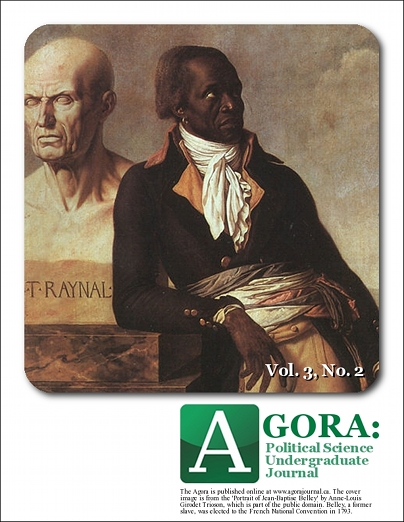The Justice of Inequality: Argumentation Ethics and Radical Non-Aggression
DOI:
https://doi.org/10.29173/agora19897Keywords:
Neo-Kantian, Economy, 2008 financial crisisAbstract
Questions of inequality of wealth frequently arise during times of economic hardship. The stagnant recovery from the 2008 global financial crisis is no exception. Many are quick to condemn inequality as an unjust social phenomenon. This article considers the ethical status of such claims by examining whether inequality is fair or not. Using a neo-Kantian framework first put forward by Hans-Hermann Hoppe, the paper elucidates the presuppositions implied by human action and uses these as a basis for political rights. Once inviolable rights to ownership of one’s person and property are established, it follows that income inequality in the absence of coercion is fair. However, since such a condition does not describe modern society, little can be immediately said about the justice of current levels of inequality.
Downloads
Published
Issue
Section
License
Authors who publish with this journal agree to the following terms:
- Authors retain copyright and grant the journal right of first publication with the work simultaneously licensed under a Creative Commons Attribution License that allows others to share the work with an acknowledgement of the work's authorship and initial publication in this journal.
- Authors are able to enter into separate, additional contractual arrangements for the non-exclusive distribution of the journal's published version of the work (e.g., post it to an institutional repository or publish it in a book), with an acknowledgement of its initial publication in this journal.
- Authors are permitted and encouraged to post their work online (e.g., in institutional repositories or on their website) prior to and during the submission process, as it can lead to productive exchanges, as well as earlier and greater citation of published work.


